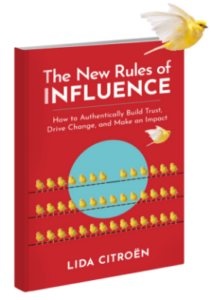Ask 15 people what they think of Lance Armstrong and you’re likely to get 20 perspectives. Loyal fans argue he remains the greatest athlete of our times, regardless of his  mistakes. Jaded fans and others believe he should not be allowed to compete again. Still others feel he led his fan base down a very long path of deception. And so on.
mistakes. Jaded fans and others believe he should not be allowed to compete again. Still others feel he led his fan base down a very long path of deception. And so on.

What Armstrong did bring to light, however, is the importance of reputation. As I often write, your reputation is created through your actions — as they support or dispel your values and beliefs, you earn credibility for a reputation. Throughout your actions and your words, if you promote a message of clean, healthy competition and then we see otherwise, the greatest impact is to your credibility and reputation.
In the case of Armstrong (with whom I have not worked), there appears to be numerous legal, financial, and promotional stakes at play, not just his personal integrity. We see this with high profile politicians, celebrities and athletes.
For the rest of us, we focus on reputation management and personal branding because our clients, customers, peers, “fans”, readers and audiences must believe in us in order to do business with us or form relationships with us. When we take a proactive reputation management strategy, we can actually design and direct the personal brand and reputation we want to be known for (in order to build credibility and attract our target audience).
To build a reputation on a foundation of integrity, I recommend the Five D’s of Reputation Management:
- Discover — Uncover your current reputation. How are you known today? How do others feel about you and perceive your value?
- Desire — Think about the reputation you desire to have. What would you like to be known for? How would you like others to refer to you? Attach as much description and thought to your desired reputation as possible. This will help create the strategy to bring that vision to life.
- Define your target audience. To what group of people must your reputation be relevant and compelling (note: it’s not “everyone”). Focus on learning everything you can about the audience you will promote your brand towards.
- Design — Create a strategy to build towards your desired brand, focusing on the audience who must find you relevant. Put goals and benchmarks on the strategy, and consider all marketing channels as possibilities.
- Deploy your marketing strategy through social media, image, body language, messaging and communications, PR and all of the tools available to you. Consistency and intention are key! Be the same person online as in person, stay authentic and relevant, and build your reputation over time to achieve your desired brand.
While your reputation issues might not land you an interview with Oprah, the power of being intentional and focused on how you are perceived is no less important. Your customers, staff, supervisors and peers are holding you accountable to be living authentically with the values you promote and the words you speak.
We can all take a lesson from Armstrong’s very public confrontation with the reality of poor reputation management.



Super post Lida. I love the 5D approach and Lance could really use this right now. I plan to link to this in an upcoming post I am writing that highlights 5 Ways Lance further damaged his personal brand based on his Oprah interview.
Thanks, Peter! Can’t wait to read your piece!